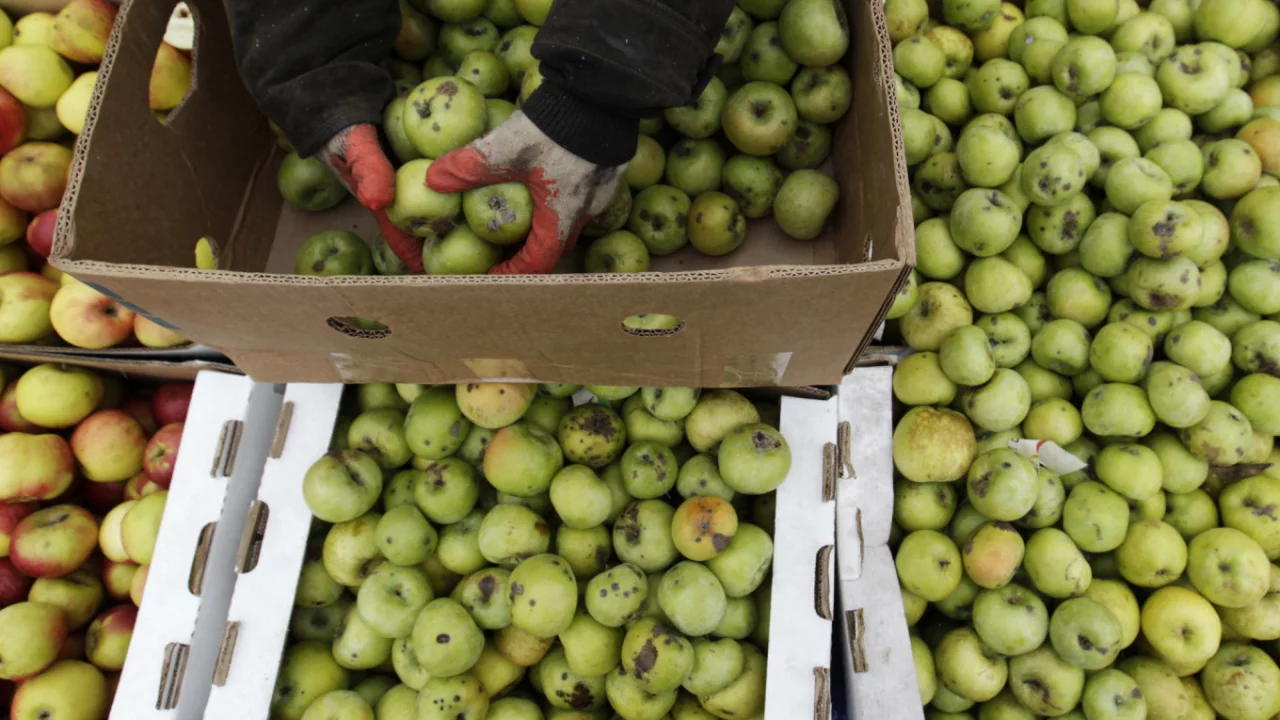
Farmers operating in various regions of Russia are becoming increasingly concerned as the harvest season approaches due to an intensifying issue — the shortage of labor. Especially farms engaged in horticulture and vegetable production are feeling this problem firsthand. Even though the harvest season is in full swing, the lack of people in the fields is depriving them of the opportunity to collect tons of crops, reports local media.
According to the president of the Russian Gardeners Association, Igor Mukhanin, this crisis has covered several regions and has turned into a real threat. He states that the tightening of requirements for migrants — in particular, the introduction of a mandatory Russian language exam — is one of the main causes of labor shortages. “Why does a migrant need Russian to pick apples? It’s enough if the foreman speaks Russian,” he says.
Mukhanin emphasizes that in 2024, the authorities of the Krasnodar region imposed restrictions on involving migrants in seasonal work. As a result, thousands of tons of apples and berries were lost — simply not harvested. In 2025, the problem expanded even further. In the Tambov region, the harvest was rich like in no other year, but farmers are unable to find workers, so apples, strawberries, and cherries are not being harvested on time.
“Look, strawberries are ready, raspberries are ripening, the cherry season is starting. But due to a lack of people, the products are being lost,” Mukhanin emphasizes.
Experts believe this problem is also seriously affecting vegetable production. During rainy weather, vegetables need to be quickly harvested and sorted. However, due to a shortage of workers, part of the harvest simply rots, which naturally leads to a rise in prices in stores.
Some farmers, trying to ease the situation, are forced to involve students and schoolchildren. For example, according to Tatyana Gubina, deputy director of the state corporation “Malino,” educational institutions are adjusting their schedules to fit seasonal agricultural work.
According to her, students are acting as machine operators and agronomists, while schoolchildren are involved in sowing and storage work. However, these measures also do not solve the problem entirely, as their work is temporary — lasting weeks or a month at most.
In various Russian regions, harvest collection without migrants is proving to be ineffective. Crops must be harvested daily, but workers are almost nonexistent. This creates a serious risk not only for farmers but also for the agricultural economy of the country.
The pressing issue is this: unless the bureaucratic barriers in the labor market are lifted, farmers may lose not just the seasonal harvest, but their entire yearly business.
In conclusion, it can be said that complications and restrictions in migration policy directly impact field labor, harvest results, and the financial stability of farmers. If this issue is not resolved, millions of tons of crops may rot every year. And the public will pay the price — through higher prices.
Farmers’ only hope is for a rational, practical decision to be made that includes a reasonable approach to human resources. Only then will Russian agriculture be able to fully collect its harvest, maintain market stability, and provide real jobs to the unemployed population. Read “Zamin” on Telegram!
Ctrl
Enter
Found a mistake?
Select the phrase and press Ctrl+Enter Related news
Information
Users of Меҳмон are not allowed to comment this publication.
Users of Меҳмон are not allowed to comment this publication.













